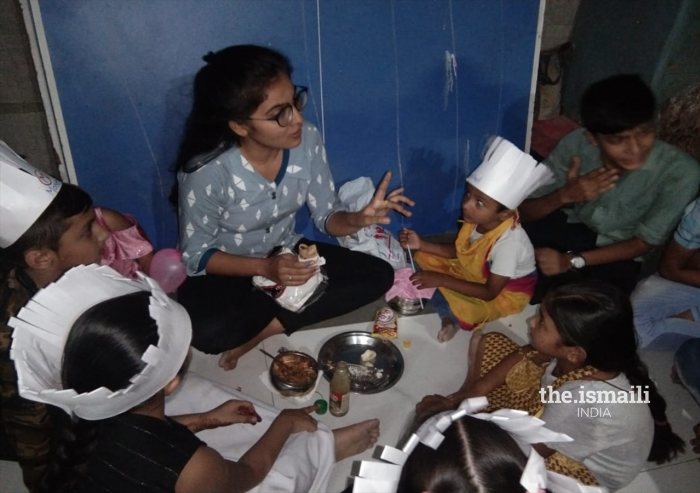World Toilet Day - Aga Khan Agency for Habitat India’s role in creating sustainable sanitation
Sanitation is one of the most pressing global development issues and is appropriately included in the Sustainable Development Goals (SDGs). Defecating in open has adverse effects on human health as exposure to water-borne and vector-borne diseases increase manifold. Government of India, over the past few decades, has taken a commitment to improve the overall well-being of citizens by providing them access to safe hygiene and sanitation. In line with Government’s vision of having a healthier nation, the Aga Khan Agency for Habitat (AKAH) India has been working in the field of rural water, sanitation and hygiene promotion since 1995.
AKAHI has worked on integrated WASH projects in the states of Gujarat, Andhra Pradesh, Jammu and Kashmir, Telangana and Maharashtra. With Government of India’s Total Sanitation Programme pilot initiative in Gujarat in 1995, AKAHI expanded to other states, including Andhra Pradesh, Jammu and Kashmir, Telangana and Maharashtra, integrating them into overall multi-sector community development initiatives by the network agencies.
In Gujarat, AKAHI first implemented the Environmental Sanitation Programme (ESP) from 1995 to 2000. The ESP improved the environmental health of local communities, especially that of women and children, by installing environmental sanitation facilities and village-level water supply infrastructure. AKAHI has been working in Gujarat since 1988 to facilitate enhanced quality of living for society-at-large through appropriate built-environment interventions. It was one of the first agencies to partner with UNICEF for the School Sanitation Programme. AKAHI has also supported housing and sanitation programmes post Gujarat earthquake through a large multi-sectoral programme along with AKDN agencies. AKAHI implemented the Gujarat Environmental Health Improvement Programme (GEHIP) with a focus on behaviour change communication approach, school health promotion, strengthening community institutions and alternative financing options.
In Andhra Pradesh, in response to the Tsunami emergency, AKAHI, along with other AKDN agencies, implemented the “Andhra Pradesh: Post Tsunami Relief to Development Program.” The overall programme goal was to enhance the state of disaster resilience and preparedness among coastal communities affected by the Tsunami. AKAHI facilitated key program objectives: (i) to reduce vulnerability from health and hygiene risks through improvement of environmental sanitation infrastructure; (ii) promoting safe sanitation and public health practices; and (iii) instituting a need-based community health systems approach focusing upon women and children for long term sustainability.
Through EHIP:
- AKAHI has managed to achieve over 95% sanitation coverage in more than 200 villages almost construction of 40000 sanitation units.
- Improved 400 school sanitation units leading to access to more than 5000 girls and 5500 boys
- Facilitation of 7 village level Waste management interventions.
- Developed awareness and handholding support for menstrual health management for 5000 no of adolescent girls and women under productive age group.
- AKAHI has also played instrumental role in achieving 100% sanitation coverage of Jamat residing in rural areas of Gujarat, in close partnership with Regional Council in mission-mode.
- Acknowledging its contribution in the WASH sector, the Dubai Municipality and UN Habitat awarded AKAHI a Best Practice certificate in 2006.
- Using innovation and best practices, AKAH India has also defined a business model for mass production of pre-fabricated sanitation units, which has been identified as ‘innovative design’ by the Government of India.
- District Rural Development Agency of three districts of Gujarat ( Bhavnagar, Gir-Somnath and Amreli) have appreciated AKAHI’s work is facilitating eradication of open defecation.
Case Studies:
1. Amthiben Punjabhai (Sedrana, Gujarat)
Amthiben Punjabhai, one of the beneficiaries from Sedrana, a village in Patan, Gujarat, adds in her own words, “We have both become very old now, despite which, we were forced to starve during the last two monsoons for the fear of walking through water-logged areas for open defecation. We were subsisting only on tea, during spells of inundation last monsoon till AKAH India showed us the path to alleviate this misery, by facilitating the construction of our very own household sanitation unit. Now, my husband and I are saved from the agony of inhumane behaviour meted out by field owners whenever we defaecated in the open. The miseries that we experienced during past monsoons are unforgettable, however, through awareness of the need for safe sanitation, the organisation has emancipated us from these sufferings.”
2. School Health Education Programme (Barpatoli, Gujarat)
Navi Barpatoli Village is situated approximately 10 Km from Rajula town in Amreli district of Gujarat. The village was adopted by AKAHI under the Environment Health Improvement Program that aims to improve the quality of life for the villagers by improving drinking water and sanitation. In 2017, AKAHI initiated the School Hygiene and Education program in the village’s primary school. With the help of School Cleanliness Committees formation, awareness meetings and capacity building for all stakeholders, the school made vast strides in adopting best practices in health and hygiene. It was awarded the Swachh Vidyalaya Puraskar by the Gujarat Council of Educational Research and Training, Amreli District. The award is aimed at recognizing, inspiring and celebrating excellence in sanitation and hygiene practice in schools.











